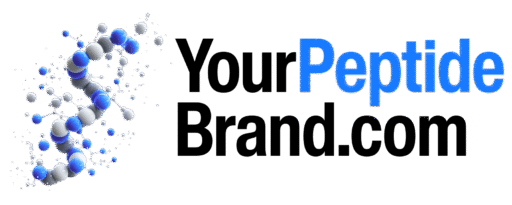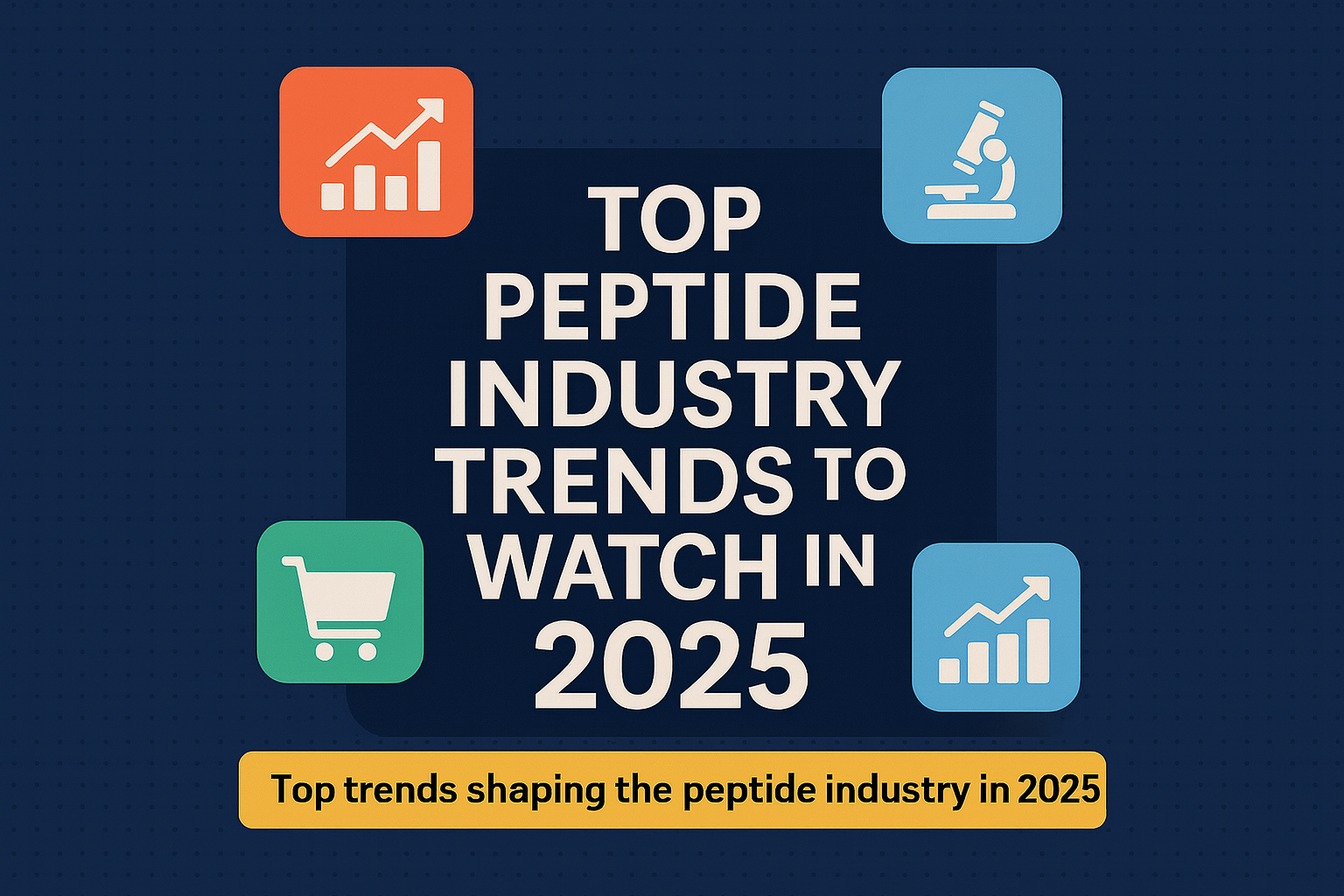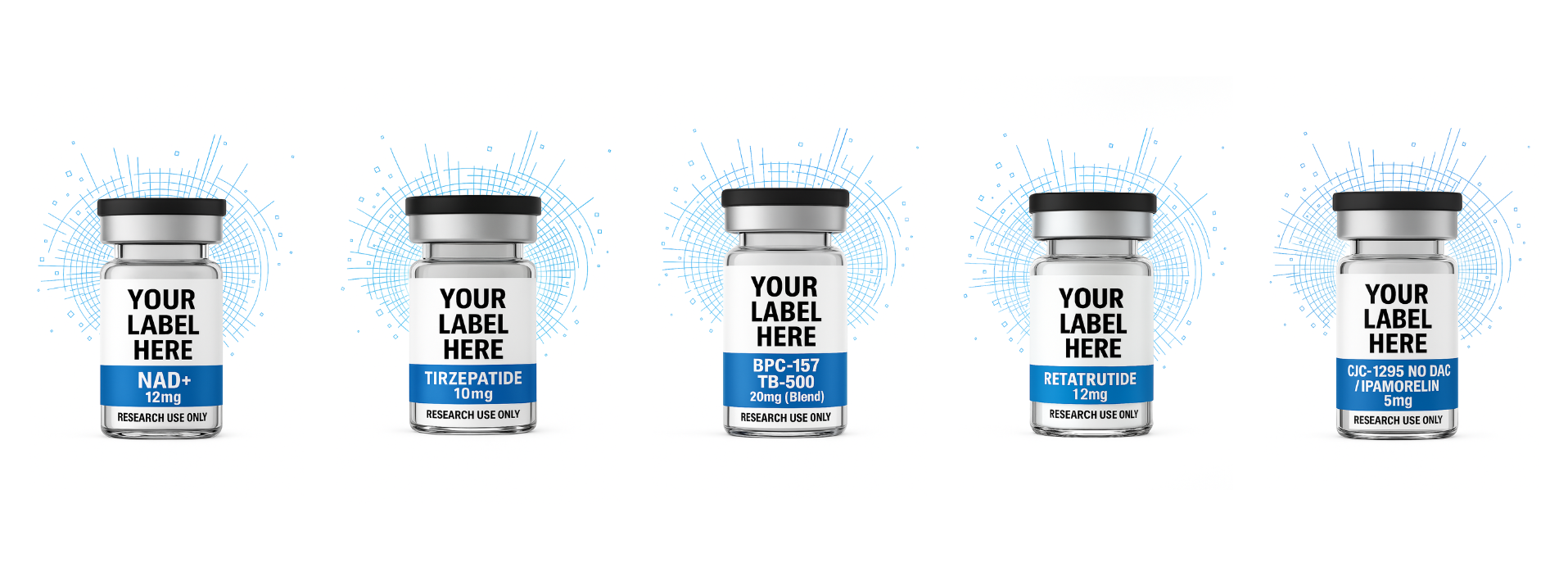How eCommerce Entrepreneurs and Med Spa Owners Can Build Compliant, Scalable Brands
The peptide industry is entering a pivotal chapter in 2025. With rising consumer curiosity, increased regulatory attention, and more accessible white-label manufacturing, the landscape is shifting rapidly—especially for brand builders.
Whether you’re launching a research-use-only peptide brand online or adding a white-labeled line to your med spa or retail location, staying ahead of B2B and B2C trends is critical to your success.
This guide breaks down the top peptide industry trends for entrepreneurs who want to build compliant, scalable, and sustainable peptide businesses.
1. Compliance-First Positioning Is No Longer Optional
In 2025, FDA and FTC enforcement continues to increase around research chemicals marketed with implied therapeutic claims. Brand founders must position peptides as “for research use only” and “not for human consumption”—not as wellness or performance supplements.
✅ Why this trend matters:
Brands that ignore these standards risk takedown notices, platform bans, or even warning letters. On the flip side, brands that lead with compliant disclaimers, sterile design, and non-medical messaging are thriving.
👉 See how YourPeptideBrand.com builds compliance into every label and website.
2. Med Spas Are Launching Their Own In-House Peptide Lines
Brick-and-mortar med spas and wellness clinics are beginning to stock white-labeled peptide inventory as part of their broader service offering. While all products must be labeled as research-use only, many owners are creating B2B-focused brands to sell:
- At checkout counters (with disclaimers)
- In private-label product bundles
- Through online portals for practitioner access
✅ Trend takeaway:
Instead of referring clients to external online sources, more wellness practitioners are launching their own compliant peptide lines using backend fulfillment from U.S.-based suppliers.
3. eCommerce Brands Are Shifting to Research-Only Language Across All Channels
New and existing peptide brand owners are removing any reference to weight loss, muscle gain, mental clarity, or therapeutic benefit from:
- Product pages
- Email campaigns
- Meta, TikTok, and Google ads
- Label designs
This shift is driven by platform policies and increasing AI detection. Those who lead with B2B-focused messaging and educational content about research peptides are experiencing longer ad account longevity and fewer compliance issues.
👉 YourPeptideBrand.com helps new brands launch with zero-risk, research-only language built in.
4. Automation Stores & Influencers Are Partnering With White Label Suppliers
The rise of no-MOQ white-label platforms has made it easy for TikTok sellers, ClickFunnels marketers, and influencers to start their own peptide brands. These sellers:
- Promote a compliant brand online
- Capture leads through research-focused funnels
- Send orders to a backend dropship partner
- Never touch inventory
✅ Why it works:
It lets influencers and creators build a brand without breaking compliance or investing in warehouse infrastructure.
5. Peptide Subscription Bundles Are Going B2B
Subscription models aren’t new—but now they’re moving into the B2B research space. Brands are offering recurring kits such as:
- Lab starter bundles (5–10 SKUs)
- Restock boxes for resellers
- Monthly “compound comparison” kits for academic research
These bundles are positioned for lab buyers and small-scale B2B customers—not end users.
6. Premium Packaging and Customization Are Driving Boutique Brand Growth
In saturated markets, differentiation matters. The fastest-growing boutique peptide brands are focused on:
- Minimalist, medical-grade branding
- Custom vial caps and packaging
- High-end printed inserts (with disclaimers)
These brands win because they look professional and compliant—and they resonate with resellers, labs, and ecommerce clients looking to align with a quality brand.
👉 Get custom white-label peptide branding with zero design guesswork.
7. Google Ads Are Becoming the Go-To Paid Channel for Research Peptides
As Meta and TikTok tighten their advertising rules, many peptide brands are shifting to Google Search and Display campaigns that target:
- “Buy research peptides”
- “Private label peptides USA”
- “Peptide suppliers for labs”
These keywords allow for B2B positioning and avoid algorithmic takedowns, provided no medical claims are used in ad copy or on landing pages.
8. Platform Policy Compliance Is the New Growth Lever
Brands that learn how to operate within the rules of major ad platforms and payment processors are scaling faster. This includes:
- Building clean funnel pages with compliance notices
- Using platforms like Shopify or WooCommerce with disclaimers
- Avoiding testimonials that imply biological outcomes
👉 See our post on compliant marketing for peptide brands.
9. Multi-Channel Distribution Is Helping Brands Diversify Risk
Smart brands are moving beyond just “having a store.” They’re launching across:
- Physical retail (spa counters, trade shows)
- Wholesale partnerships (B2B sites, bulk orders)
- eCommerce (Shopify, funnels, TikTok Shop)
- Lead gen pipelines for B2B clients
Diversifying channel strategy helps avoid being shut down by one platform policy and creates consistent monthly revenue.
Final Thoughts: 2025 Is the Year to Build Smarter, Not Louder
Peptide brands that will thrive in 2025 aren’t the loudest or flashiest. They’re the ones who build with a long-term, compliance-first mindset, professional infrastructure, and strategic niche focus—whether online or in-person.
✅ Ready to Launch a Compliant Peptide Brand?
At YourPeptideBrand.com, we help you:
- Build your own white label peptide brand (no MOQs)
- Access 140+ ready-to-label SKUs
- Use automated U.S. fulfillment
- Stay fully compliant with FDA and FTC standards
- Get professional branding and design assets done for you
👉 Apply now to launch your peptide business with zero compliance risk.
Scientific & Industry References
FDA Warning Letters: https://www.fda.gov/inspections-compliance-enforcement-and-criminal-investigations/compliance-actions-and-activities/warning-letters
FTC Advertising Guidelines: https://www.ftc.gov/business-guidance/resources/advertising-marketing-internet-rules-road
PubMed – Peptide Research: https://pubmed.ncbi.nlm.nih.gov/


